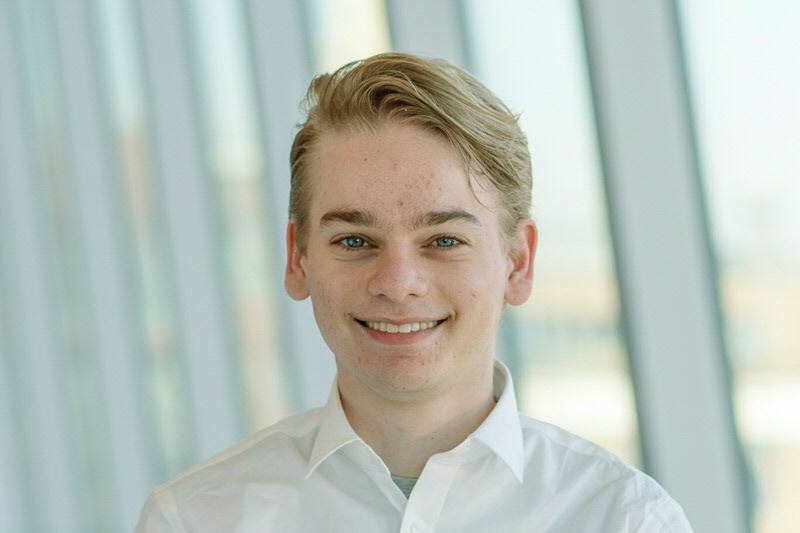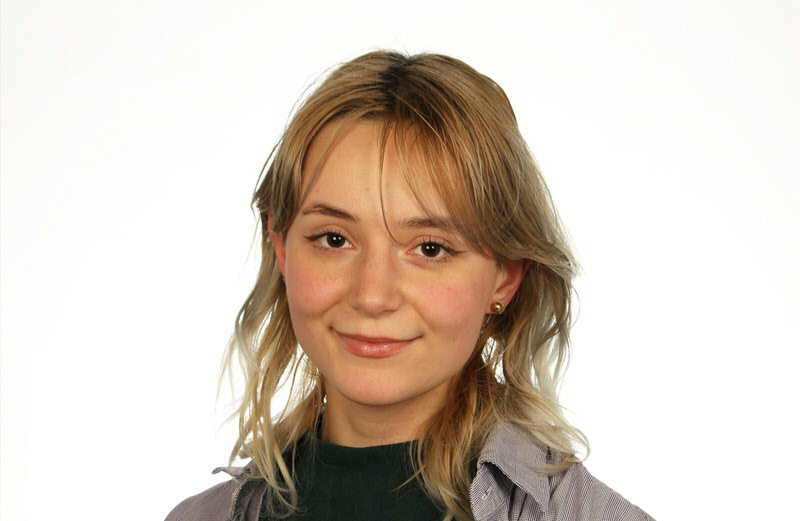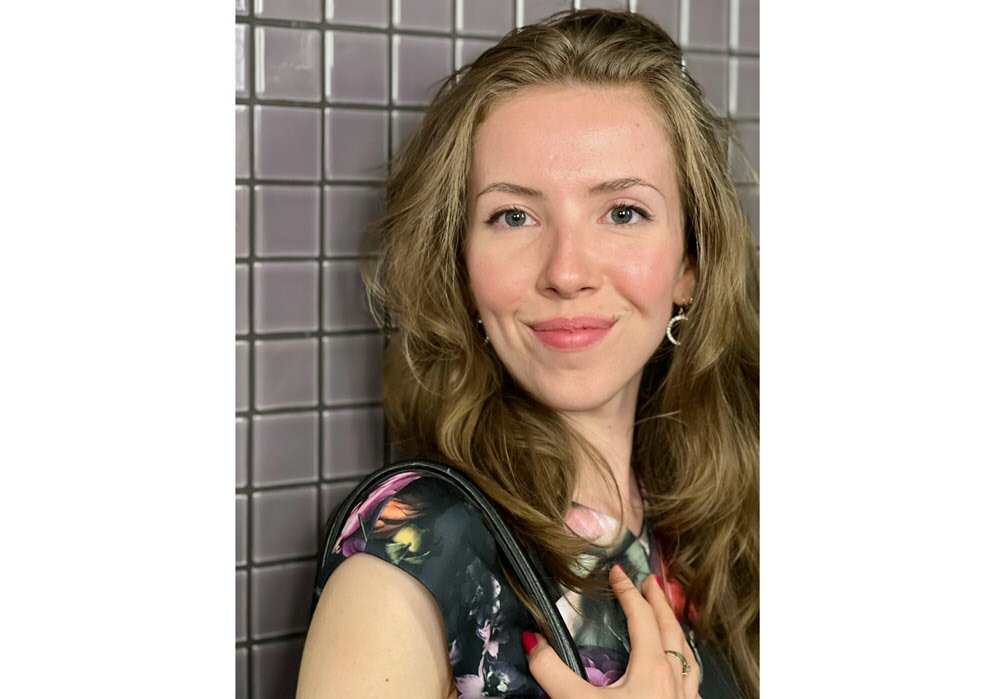
The Master's track History of Architecture and Urbanism explores the evolution of cities, villages, and landscape design in Europe within the continuously changing global environment.
Cities, neighbourhoods, buildings,
parks, and cultural landscapes define the setting of our everyday
life. No other human-made artifacts document the evolution of
social relations, economic trends, technological innovations,
philosophical views on humans and nature, politics, society, and
culture more eloquently than architecture and urbanism. Our built
heritage connects us to our past and helps us to position ourselves
in the world around us. It helps us envision our future. Moreover,
the impact of cities and buildings on health is self-evident
– urban planners gave us our water management systems, and
architects designed functional public housing and healthcare
buildings. They are fascinating works of architecture that impact
people’s mental and physical health, happiness, and
well-being.
This Master's track provides students
with a rich and varied introduction to the history and theory of
architecture and urban planning, cultural heritage, and healthy
cities. It offers our students a progressive approach to
architectural and urban history and theory, fit for our
transforming times. Some of the courses we offer are affiliated
with the Expertise Center Architecture, Urbanism and Health and
give those interested in the health impacts of the built
environment opportunities to explore these impacts from the
perspective of architectural and urban design. Our master's degree
allows students to specialize in architectural history and theory,
cultural heritage, the health impacts of architecture and urbanism,
or their complex links and connections. All of our graduates find
attractive employment in their field immediately after the
completion of the degree.
The MA track positions the evolution of the European city (including the post-socialist cities in Central and Eastern Europe) as intimately linked with trends and tendencies at the global scale.
Starting with the European city, this Master's track provides students with the expertise and critical perspective to study both historical and contemporary urban processes in today's global setting. Historians, architects, urban planners, cultural heritage specialists, environmental scientists, medical professionals, and policymakers highly benefit from the courses offered in this track.
The Master's track has two distinct components. The first semester is organized around a number of courses that foster the intense cooperation between students (historians, architects, environmental scientists, etc.) and staff. The second semester encourages the students to develop their academic skills, culminating in individual research projects. Here the personal preferences, skills, and ambitions of the students are embedded in a custom-made programme that includes interaction with a range of different institutions and professionals (architectural firms, urban planning boards, healthcare institutions, heritage authorities, etc.).
| Semesters | ||||
|---|---|---|---|---|
| CoursesCourse Catalog > | 1a | 1b | 2a | 2b |
| Cultural Heritage (10 EC) | ||||
| Origins of Healthy City (10 EC) | ||||
| Theories and Methodologies in Architectural and Urban History (10 EC) | ||||
| Internship (10 EC) | ||||
| Master Thesis (20 EC) | ||||
'Cultural Heritage' explores the ways in which we pass on
historical relics to the future, what this says about our cultures
and societies, and the tension between global trends and local
identities.'Origins of the Healthy City' examines the relationship
between healthy cities and urban policies. In 'Theories and
Methodologies in Architectural and Urban History', students develop
a critical overview of thoughts on function (type) and thoughts on
form and style and do research into a specific European city (e.g.,
Prague, Berlin, Barcelona, Paris, Belgrade, and Budapest, amongst
others); students actively participate in excursions and are
encouraged to explore the cities in different contexts.
| Programme options |
|---|
| Master's placement (specialization) This Master's track includes an optional work placement for which you are awarded ECTS credit points. It is your responsibility to find a placement yourself, but the Office for Student Affairs can offer help with this where necessary. |
Students are encouraged to spend a term abroad to complement the MA curriculum; especially the 2nd semester offers ample opportunities to opt for study, research, or internship at a foreign university or institution, thanks to our international network and exchange contracts in Germany, Belgium, Italy, Colombia, Spain, Poland, Hungary, and elsewhere. Furthermore, our collaboration with the International New Town Institute offers our students exchange projects in China and Kenya.
| Specific requirements | More information |
|---|---|
| previous education |
Students with a Bachelor's degree in Art History, Architecture, Spatial Planning, Archaeology, History, Urban Studies or Design Studies are directly admissible to this Master's track. University of Groningen students with a BA in:
with a Faculty Minor (30 ECTS) in History in Art, Architecture and Landscape are also eligible for admission to this Master's track only via the Admission Board. Professionals and students with a background in a related field, such as architectural and urban history, urban studies, architecture, urbanism, urban design, public health, urban health, are welcome to apply to the track. The Admission Board will assess whether your educational/academic background meets the specific track requirements, and will consider the level and curriculum of your previous studies. Checklist previous education (to upload to the Progress Portal): https://www.rug.nl/let/studeren-bij-ons/kunstgeschiedenis/arts-and-culture-history-of-architecture-and-town-planning-checklist-completed.docx |
| language test |
Additional requirements English: A VWO diploma or a subject certificate for VWO English (mark 6 or higher), minimum requirement of TOEFL iBT 90 (with a minimum of 21 on all items), or IELTS 6.5 (with a minimum of 6 on all items) or Cambridge C1 Advanced or C2 Proficiency. |
| Study programme | Organization | Transition |
|---|---|---|
| Arts, Culture and Media | University of Groningen |
Additional requirements More information:With a Faculty Minor (30 ECTS) History in Art, Architecture and Landscape, you are eligible for admission to this Master's track only via the Master Admission Board |
| English Language and Culture | University of Groningen |
Additional requirements More information:With a Faculty Minor History in Art, Architecture and Landscape, you are eligible for admission to this Master's track only via the Master Admission Board |
| American Studies | University of Groningen |
Additional requirements More information:With a Faculty Minor History in Art, Architecture and Landscape, you are eligible for admission to this Master's track only via the Master Admission Board |
| Media Studies | University of Groningen |
Additional requirements More information:With a Faculty Minor History in Art, Architecture and Landscape, you are eligible for admission to this Master's track only via the Master Admission Board |
| Frisian Language and Culture | University of Groningen |
Additional requirements More information:With a Faculty Minor History in Art, Architecture and Landscape, you are eligible for admission to this Master's track only via the Master Admission Board |
| European Languages and Cultures | University of Groningen |
Additional requirements More information:With a Faculty Minor History in Art, Architecture and Landscape, you are eligible for admission to this Master's track only via the Master Admission Board |
| Dutch Languages and Cultures | University of Groningen |
Additional requirements More information:With a Faculty Minor History in Art, Architecture and Landscape, you are eligible for admission to this Master's track only via the Master Admission Board |
| Communication and Information Studies | University of Groningen |
Additional requirements More information:With a Faculty Minor History in Art, Architecture and Landscape, you are eligible for admission to this Master's track only via the Master Admission Board |
| Spatial Planning and Design | University of Groningen | No additional requirements |
| Study programme | Organization | Transition |
|---|---|---|
| Human Geography and Planning | All Research universities | No additional requirements |
| History (part-time) | All Research universities | No additional requirements |
| Archaeology | All Research universities | No additional requirements |
| Art History | All Research universities | No additional requirements |
| Landscape Architecture and Planning | All Research universities | No additional requirements |
| Urban Studies | All Research universities | No additional requirements |
Please use this step-by-step guide for more information regarding your eligibility and your specific application procedure.
After you complete your application, the Admissions Board will assess whether your educational/academic background meets the specific programme requirements, and will consider the level and curriculum of your previous studies.
The Admissions Board will then determine whether:
| Type of student | Deadline | Start course |
|---|---|---|
| Dutch students | 15 August 2025 | 01 September 2025 |
| 15 August 2026 | 01 September 2026 | |
| EU/EEA students | 01 May 2026 | 01 September 2026 |
| non-EU/EEA students | 01 May 2026 | 01 September 2026 |
| Specific requirements | More information |
|---|---|
| previous education |
Students with a Bachelor's degree in Art History, Architecture, Spatial Planning, Archaeology, History, urban studies or design studies are directly admissible to this Master's track. University of Groningen students with a BA in:
with a Faculty Minor (30 ECTS) in History in Art, Architecture and Landscape are also eligible for admission to this Master's track only via the Admission Board. Professionals and students with a background in a related field, such as architectural and urban history, urban studies, architecture, urbanism, urban design, public health, urban health, are welcome to apply to the track. The Admission Board will assess whether your educational/academic background meets the specific track requirements, and will consider the level and curriculum of your previous studies. Checklist previous education (to upload to the Progress Portal): https://www.rug.nl/let/studeren-bij-ons/kunstgeschiedenis/arts-and-culture-history-of-architecture-and-town-planning-checklist-completed.docx |
| language test |
Additional requirements English: A VWO diploma or a subject certificate for VWO English (mark 6 or higher), minimum requirement of TOEFL iBT 90 (with a minimum of 21 on all items), or IELTS 6.5 (with a minimum of 6 on all items) or Cambridge C1 Advanced or C2 Proficiency. |
Please use this step-by-step guide for more information regarding your eligibility and your specific application procedure.
After you complete your application, the Admissions Board will assess whether your educational/academic background meets the specific programme requirements, and will consider the level and curriculum of your previous studies.
The Admissions Board will then determine whether:
| Type of student | Deadline | Start course |
|---|---|---|
| Dutch students | 15 August 2025 | 01 September 2025 |
| 15 August 2026 | 01 September 2026 | |
| EU/EEA students | 01 May 2026 | 01 September 2026 |
| non-EU/EEA students | 01 May 2026 | 01 September 2026 |
The master's track opens a myriad of career opportunities, in the Netherlands and abroad, as has been proved over the years. Specifically, our graduates have found careers in the Province of South Holland, De Architects (architectural journalism), CeanConsluting (a management office), Vitruvianum (an architecture centre in Heerlen), the municipality of Groningen, real estate advisory office, architectural firms, and elsewhere.

I am Menke Ubbens, 24 years old and I live in Uithuizermeeden. After my bachelor's degree in Spatial Planning and Design, I first started doing the master's in Society Sustainability and Planning. By being active in various fields alongside my studies, I ended up having to take two years over this master. As a result, I had extra time in the second year that I wanted to use to learn as much as possible.

Hey! I'm Alexandra Lupu-Barat and I'm 22 years old. I study History of Architecture and Urbanism as one of the programme's many international students. I come from Romania, a place less known for its architecture, and more for its pastoral, untouched landscapes. It is my fourth year in Groningen, so I've been trying to be more involved within the community. Right now I am passionate about movies (I try not to miss the university film club) and seeing as much of the Netherlands as possible.


Are you interested in a research oriented career? Please also check our Research Master's Programme of Arts & Culture.